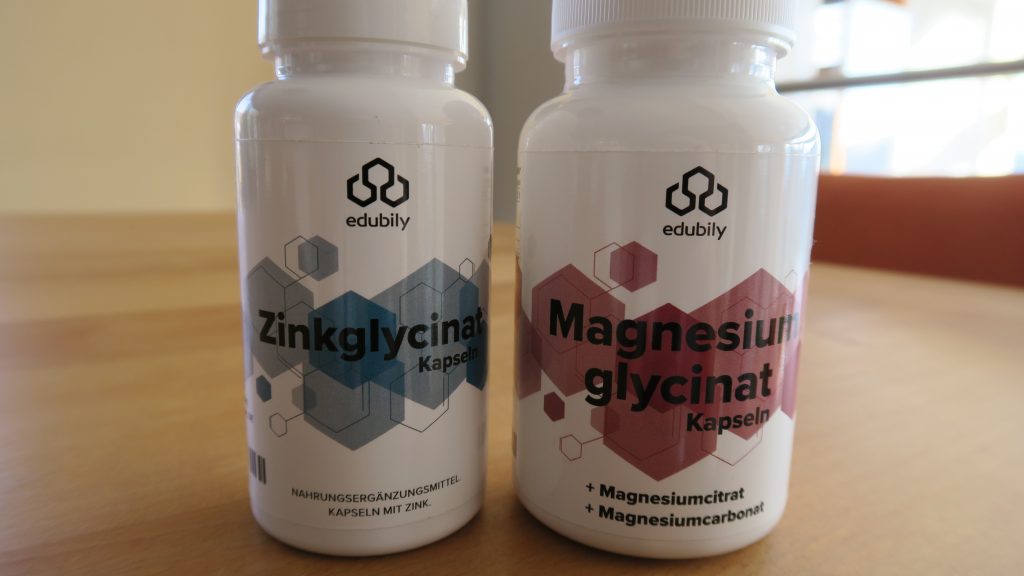 I almost feel sorry for them.
I almost feel sorry for them.
The younglings walking into supplement stores in search of the magic elixir, the one thing that will transform their stick-figuresque bodies into solid granite.
Like gazelles, they timidly sneak through the aisles staring at the flashy bottles before being spotted by the pill-pushers.
“Hey you! You lookin’ to score?”
Don’t let them screw you. If you’re going to walk into a supplement store or buy supplements online, come prepared. Know what to look for and don’t get duped into buying overpriced and under-dosed industry garbage (“MassMonster 5000”).
There’s a very short list of supplements worthy of your time and money. With that said, none of them match the power of a customized diet and training routine. None.
Should You Take a Multivitamin?
Athletes consistently pushing the limit in training frequently develop deficiencies in key minerals and vitamins. Namely magnesium, zinc, chromium, selenium and Vitamin D.
Vigorous activity draws on the body’s nutrient stores (micronutrients are lost in large amounts through sweat) and if those are not adequately replenished, deficiencies may develop over time.
Athletes frequently suffer from nutrient deficiencies for multiple reasons:
- Restriction of energy intake
- Extreme weight-loss practices
- Avoidance of one or more food groups
- Poor diet quality (“junk food athletes”)
Furthermore, if you’re eating a low-calorie (i.e. dieting or competing in weight-controlled sports), low-protein, low-carb or vegetarian diet, your risk of developing a micronutrient deficiency is increased severalfold.
 This has bad news written all over it.
This has bad news written all over it.
Take a look at the symptoms of a zinc deficiency:
– impaired muscular growth and recovery
– suppressed testosterone levels
– impaired immune function
And that is “just one” mineral. You’re jeopardizing your success in and out of the gym by skimping on your “micros”.
So how do you make sure you get enough vitamins and minerals?
1. Do not chronically restrict energy intake.
2. Put high-quality nutrition in your body.
3. Consider supplementation (if all else fails).
To minimize the chances of developing micronutrient deficiencies, eat a nutrient-dense iso-caloric diet (where intake matches expenditure) and avoid restrictive diets and weight-loss protocols.
Multi-vitamin and/or mineral formulas cannot compensate for an inadequate diet. Most commercial products under-dose key nutrients while using the cheapest, least bio-available ingredients. You end up pissing out most of the stuff you ingest.
Another caveat of multivitamins is the cross-reaction of different compounds. Several vitamins and minerals use the same transport proteins and when you ingest large amounts of micronutrients simultaneously (as with a multivitamin) absorption and assimilation are significantly compromised.
Throw your multivitamin in the trash and stick to the basics.
The Master Minerals
Magnesium and zinc are the most important minerals for athletes.
Heavily involved in protein metabolism, insulin function, tissue repair and growth, these two master minerals are integral to your body’s ability to handle training-related stress.
Best sources of magnesium: Dark chocolate, nuts and seeds, leafy green vegetables
Best sources of zinc: beef, oysters, dairy, nuts and seeds
How do you know if they “work”?
Pop a few magnesium pills with your post-workout meal or pre-bed and you’ll feel as good as new the next morning (magnesium is a must if you have trouble sleeping through the night).
To improve insulin sensitivity (= the key to ultimate human performance), control estrogen levels and have the morning wood of a 16-year-old, add 15-30 mg/ day of zinc to your regimen (preferably as zinc citrate or glycinate).

How to take: Split your dose of magnesium into 2-3 servings to increase absorption and avoid loose stools. Taking a dose pre-bed is recommended as magnesium reduces cortisol and is involved in the synthesis of melatonin, a vital sleep hormone.
Personally, I like to use magnesium pre-workout as I notice a definite improvement in performance and recovery. 100-300 mg of magnesium a day is a good place to start.
Zinc competes with magnesium for absorption, so take them at separate times during the day to maximize uptake (i.e. zinc with your first meal of the day and magnesium pre-bed).
More is not better. Find the minimum effective dose.
What about protein shakes?
I don’t consider protein powders “supplements”. Shakes are merely a tasty and convenient way to bump up your daily protein intake. Personal favorites are protein yogurt and protein oatmeal (“proats”). I even add protein powder to cottage cheese if I need more protein. Tastes fantastic, is macro-friendly and fast.
I recommend getting 25-35% of your daily calories from protein (0.8-1.2 grams per pound of bodyweight). This can be difficult to obtain from whole foods alone, especially if you don’t meal prep or cook multiple times a day.
Quality matters big time here, though.
Make sure to purchase from trusted brands and be on the outlook for shady marketing, outlandish claims, and proprietary blends. If you’re not sure about a particular product or brand demand a certificate of analysis. Any reputable company will happily oblige.
How To Use Supplements
If you’re going to experiment with a product, give it a fair shot by using it for at least 3-4 weeks. Don’t mix and match 5 different supplements all at once, as you’ll never find out which ones work and which don’t.
Add 1 or max. 2 new compounds to your regimen and test drive them for a few weeks straight before drawing any conclusions. That’s the only way to tell if a product truly delivers or not.
Don’t use any supplement daily. Even something as “harmless” as magnesium or b-vitamins shouldn’t be supplemented every single day. Take at least 1-2 days per week off from all supplements.
Also, consider getting your vitamin and mineral levels checked 1-2x a year. If you don’t want to spend the few bucks on a blood test what are you doing wasting money on supplements and miracle pills?
Always remember that supplements are just that; products to supplement your diet and fitness program. Don’t skimp on the fundamentals because you’re now “on” creatine or BCAA’s. Get your priorities straight. You can’t compensate for a shitty diet by taking supplements. Not even remotely.
Monitor your workouts (you gettin’ stronger bra?), track your nutrition (you gettin’ your protein bra?), get sufficient sleep (you gettin’ a good nights’ rest bra?) and then, you may consider adding another player to the game.
Thank you for reading
Victor
Resources:
Golf SW, Bender S, Grüttner J. (1998). On the significance of magnesium in extreme physical stress. Cardiovasc Drugs Ther. 1998 Sep;12 Suppl 2:197-202.
Rodriguez NR, Di Marco NM, Langley S. (2009). American College of Sports Medicine position stand. Nutrition and athletic performance. Med Sci Sports Exerc. 2009 Mar;41(3):709-31.
[…] People always look at me strange when I give away my supplement “secrets”. […]